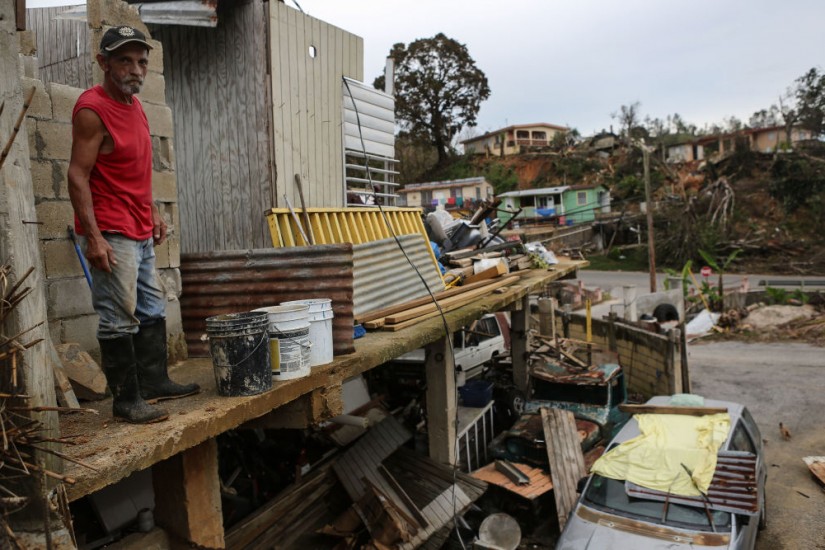Puerto Rico already had a higher rate of income inequality than any U.S. state, and it has only been made worse by tax incentives used to lure investors at the expense of a depleted public sector. Puerto Rico's Act No. 22 allows wealthy investors to evade federal and local income tax by spending a minimum of 183 nights a year on the island. These types of initiatives promote the arrival of wealthy retirees and part-time Caribbean residents, who are able to erect multimillion-dollar mansions complete with hurricane-proof bunkers, while many of those born and raised in these societies must rely on public infrastructure that has been deeply eroded to service foreign debt and provide tax breaks.
As an unincorporated territory of the United States, Puerto Rico qualifies for aid programs including Federal Emergency Management Agency assistance. However, with a poverty rate nearly double that of Mississippi, failing infrastructure that has been neglected for more than a decade and a public sector that has been increasingly dismantled in response to the debt crisis, the island was already in a state of emergency long before the storm hit. This is why Irma, a weaker storm than Maria, managed to knock out power for almost the entire island and cause significant damage — not coincidentally in areas that are subject to long-standing issues of racial and social marginalization, violence and precarity, such as Vieques, Culebra and Loiza.
Natural disasters and moments of social and political upheaval mark the few occasions when these marginal citizens fleetingly appear in the national consciousness. In these moments, it’s common to hear debate about why these societies remain tied to their colonial centers. Why do these remnants of empire persist? What benefits do they provide? How can their metropoles “afford” what are seen by many as “expensive” imperial debris?
The most obvious answer is geopolitics: These far-flung territories provide military bases, satellite launching centers and footholds in important terrains. Less obvious is the fact that these societies are protected markets for national corporations. American companies such as Walmart and Walgreens have more stores per square mile in Puerto Rico than anywhere else in the world. Their prevalence is due in part to the deep subsidies they receive from the local government, which channels federal funds to help pay for training and payroll. The local government attempted to retain some of these profits by raising taxes on goods brought into Puerto Rico from foreign (including U.S.) distributors, but Walmart, the biggest private employer on the island, sued and threatened to leave.
